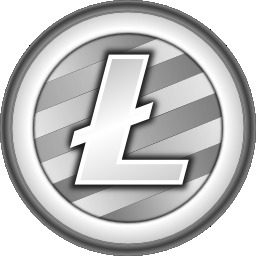Confronta Bitcoin Cash (BCH) vs Litecoin (LTC) Coin
In the evolving landscape of digital currencies, Bitcoin Cash (BCH) and Litecoin (LTC) have carved a noteworthy reputation for themselves. As both aim to ease daily transactions with faster speed and lower costs, it's essential to delve into their differences and similarities, exploring their unique attributes and potential for future growth.
User rating
Cryptogeek rating
Punteggio di Fiducia
Come funziona
About
|
Bitcoin Cash è il fork di Bitcoin più popolare proposto da Roger Ver nel 2017 come soluzione al problema delle transazioni lente nella rete Bitcoin. L'idea era di creare una versione di Bitcoin che sarebbe meglio per i pagamenti, mentre il Bitcoin originale è considerato più come un negozio di valore. Bitcoin Cash ha una dimensione di blocco maggiore rispetto a Bitcoin, quindi le transazioni di questa valuta sono più veloci ed economiche. D'altra parte, richiede più risorse per eseguire il nodo completo di Bitcoin Cash che lo rende più vulnerabile alla centralizzazione. Bitcoin Cash ha rapidamente attirato un enorme seguito ed è diventato una parte importante del mercato delle criptovalute. BCH è disponibile in molti exchange ed è supportato da numerosi servizi di crittografia. Dal lancio del progetto, non ha mai lasciato la top 10.
|
Litecoin è stata creata nel 2011 da un dipendente di Google Charlie Lee. Attualmente, questa criptovaluta è una delle più grandi per capitalizzazione di mercato. Litecoin è stato creato come una delle prime forcelle della blockchain Bitcoin. Inoltre, è sicuro dire che Litecoin è uno dei primi altcoin. Mentre Bitcoin si basa sull'algoritmo SHA-256, Litecoin utilizza un algoritmo scrypt più leggero.
|
Tipo
Data di lancio
Località:
|
International
|
International
|
Lingue
Team
Protocollo
|
Public blockchain
|
Public blockchain
|
Prezzo attuale (USD)
Più alto di sempre (USD)
Variazione di prezzo (24 ore)
Volume (24 ore)
|
9567136.78351
|
32694144.06969
|
Hashrate
Limite Massimo
|
21000000.00000
|
84000000.00000
|
Totale offerta
Limite in circolazione
|
19917362.39665
|
76234583.23347
|
Velocità di transazione / Tempo blocco
Commissione sulla transazione
Profitabilità di mining
Algoritmo
Proof type
Completamente estratto
Smart contract indirizzo
Totale monete estratte
|
18462627.14680
|
65464957.99676
|
Sta commerciando
Ricompensa di blocco
|
6.250000000000
|
12.500000000000
|
Tempo di blocco
| About |
Bitcoin Cash è il fork di Bitcoin più popolare proposto da Roger Ver nel 2017 come soluzione al problema delle transazioni lente nella rete Bitcoin. L'idea era di creare una versione di Bitcoin che sarebbe meglio per i pagamenti, mentre il Bitcoin originale è considerato più come un negozio di valore. Bitcoin Cash ha una dimensione di blocco maggiore rispetto a Bitcoin, quindi le transazioni di questa valuta sono più veloci ed economiche. D'altra parte, richiede più risorse per eseguire il nodo completo di Bitcoin Cash che lo rende più vulnerabile alla centralizzazione. Bitcoin Cash ha rapidamente attirato un enorme seguito ed è diventato una parte importante del mercato delle criptovalute. BCH è disponibile in molti exchange ed è supportato da numerosi servizi di crittografia. Dal lancio del progetto, non ha mai lasciato la top 10.
|
Litecoin è stata creata nel 2011 da un dipendente di Google Charlie Lee. Attualmente, questa criptovaluta è una delle più grandi per capitalizzazione di mercato. Litecoin è stato creato come una delle prime forcelle della blockchain Bitcoin. Inoltre, è sicuro dire che Litecoin è uno dei primi altcoin. Mentre Bitcoin si basa sull'algoritmo SHA-256, Litecoin utilizza un algoritmo scrypt più leggero.
|
| Tipo |
Tipo
coin
|
Tipo
coin
|
| Data di lancio |
Data di lancio
2017
|
Data di lancio
2011
|
| Località: |
Località:
International
|
Località:
International
|
| Lingue |
Lingue
Nessun dato
|
Lingue
Nessun dato
|
| Team |
Team
Public
|
Team
Public
|
| Protocollo |
Protocollo
Public blockchain
|
Protocollo
Public blockchain
|
| Prezzo attuale (USD) |
Prezzo attuale (USD)
551.2769
|
Prezzo attuale (USD)
112.2027
|
| Più alto di sempre (USD) |
Più alto di sempre (USD)
4355.6200
|
Più alto di sempre (USD)
375.2900
|
| Variazione di prezzo (24 ore) |
Variazione di prezzo (24 ore)
1.00
|
Variazione di prezzo (24 ore)
-0.90
|
| Volume (24 ore) |
Volume (24 ore)
9567136.78351
|
Volume (24 ore)
32694144.06969
|
| Hashrate |
Hashrate
2653000000
|
Hashrate
165730
|
| Limite Massimo |
Limite Massimo
21000000.00000
|
Limite Massimo
84000000.00000
|
| Totale offerta |
Totale offerta
Nessun dato
|
Totale offerta
Nessun dato
|
| Limite in circolazione |
Limite in circolazione
19917362.39665
|
Limite in circolazione
76234583.23347
|
| Velocità di transazione / Tempo blocco |
Velocità di transazione / Tempo blocco
116
|
Velocità di transazione / Tempo blocco
56
|
| Commissione sulla transazione |
Commissione sulla transazione
Nessun dato
|
Commissione sulla transazione
Nessun dato
|
| Profitabilità di mining |
Profitabilità di mining
low
|
Profitabilità di mining
low
|
| Algoritmo |
Algoritmo
SHA-256
|
Algoritmo
Scrypt
|
| Proof type |
Proof type
PoW
|
Proof type
PoW
|
| Completamente estratto |
Completamente estratto
Nessun dato
|
Completamente estratto
Nessun dato
|
| Smart contract indirizzo |
Smart contract indirizzo
Nessun dato
|
Smart contract indirizzo
Nessun dato
|
| Totale monete estratte |
Totale monete estratte
18462627.14680
|
Totale monete estratte
65464957.99676
|
| Sta commerciando |
Sta commerciando
yes
|
Sta commerciando
yes
|
| Ricompensa di blocco |
Ricompensa di blocco
6.250000000000
|
Ricompensa di blocco
12.500000000000
|
| Tempo di blocco |
Tempo di blocco
600
|
Tempo di blocco
150
|
Media
Sito web
Twitter
Vantaggi
|
Scalable
Highly Efficient
Easy To Acquire
|
Open-source Network
Decentralized
Transactions Fees
|
Svantaggi
|
Branding Issues
|
Has some branding issues
|
Valutazione
| User rating |
User rating
4.4 / 5
7 recensioni degli utenti
|
User rating
5 / 5
5 recensioni degli utenti
|
| Cryptogeek rating |
Cryptogeek rating
4 / 5
|
Cryptogeek rating
3.4 / 5
|
| Vantaggi |
Vantaggi
Scalable
Highly Efficient
Easy To Acquire
|
Vantaggi
Open-source Network
Decentralized
Transactions Fees
|
| Svantaggi |
Svantaggi
Branding Issues
|
Svantaggi
Has some branding issues
|
La valutazione degli utenti di Bitcoin Cash (BCH) è 4.4, basata sulle recensioni degli utenti di 7. La valutazione degli utenti dell'azienda Litecoin (LTC) è 5, basata sulle recensioni degli utenti di 5.
We also calculate the special Cryptogeek TrustScore based on the characteristics of each coin.
Scegli altre aziende
Thus, after comparing Bitcoin Cash and Litecoin's unique attributes, it's clear that while both offer their distinct advantages, the choice between the two depends largely on the individual's specific needs and preferences. As this dynamic industry continues to grow, each of these digital currencies will undoubtedly continue to evolve and refine their functionalities, potentially reshaping their competitive geography.
In the evolving landscape of digital currencies, Bitcoin Cash (BCH) and Litecoin (LTC) have carved a noteworthy reputation for themselves. As both aim to ease daily transactions with faster speed and lower costs, it's essential to delve into their differences and similarities, exploring their unique attributes and potential for future growth.

